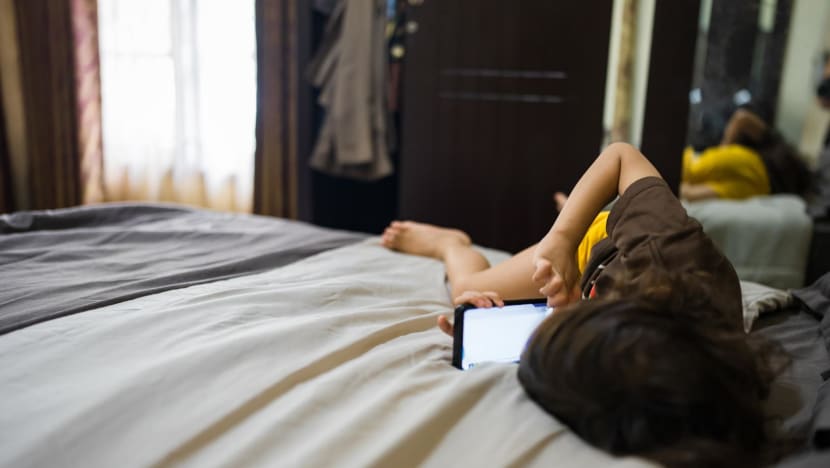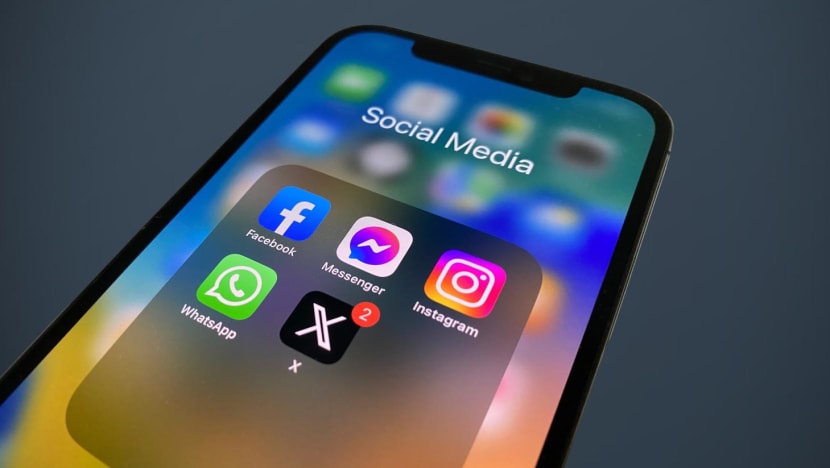4 in 5 Indonesian parents support government’s proposal to regulate children’s social media usage: Survey
However, only half (50 per cent) believe that it will be effective in controlling their children’s online presence, the survey by global public opinion and data company YouGov found.

The Indonesian government has plans to issue a regulation to set a minimum age for social media users to protect children. (File photo: iStock/rudi_suardi)
SINGAPORE: Some 84 per cent of Indonesian parents support a government proposal to set a minimum age for social media access aimed at protecting children, according to a survey published on Tuesday (Feb 11), with a higher percentage of mothers in favour of such legislation as compared to fathers.
The widespread support for stricter regulations comes as exposure to age-inappropriate content was identified as the “biggest concern” among parents regarding social media usage by children, the report by global public opinion and data company YouGov found.
The data is based on surveys conducted last month of adults aged 18 and above with a sample size of 892 respondents. All of them have at least one child under the age of 18.
The survey was conducted online.
Earlier in January, Communications Minister Meutya Hafid said that the Indonesian government plans to issue a regulation to set a minimum age for social media users to protect children, following Australia’s decision to ban children under 16 from accessing social media.
“What the minister means is that the government is headed for the direction of a stronger regulation on age limit, which is through the formation of a law,” Alexander Sabar, a senior official at the communications and digital ministry, told Reuters following the minister's announcement.
Based on the YouGov report, mothers showed greater support for the proposed regulation, with 88 per cent in favour as compared to 81 per cent of fathers surveyed.
While exposure to age-inappropriate content was the biggest concern among the parents surveyed at 81 per cent, other issues that were highlighted include addiction or excessive screen time (74 per cent), negative mental health impacts (70 per cent), as well as the spread of misinformation (62 per cent) among others.
Meanwhile, just 54 per cent of parents surveyed are concerned about cyber bullying or harassment on social media.
However, while the YouGov survey found that a majority of parents are in support of the upcoming legislation, only half (50 per cent) believe that it will be effective in controlling their children’s online presence. Seventeen per cent remain skeptical of the legislation’s effectiveness while 33 per cent are neutral on the matter.
The survey also found that TikTok - known for its short-form mobile videos - is considered by parents to be the “most dangerous” social media platform for children, with 58 per cent of respondents expressing concerns. Meanwhile, X closely follows with 51 per cent viewing it as a potential risk.
In comparison, YouTube and Instagram are regarded as “safer platforms” though many respondents share a “neutral stance” regarding its potential dangers, according to YouGov.

PERCEIVED IDEAL AGE TO USE SOCIAL MEDIA, DAILY LIMIT
On the appropriate age for children to start using social media, 81 per cent of parents surveyed feel that 15 to 17 years old is ideal, while 12 per cent of them consider the 12 to 14 age group suitable.
The survey also found that about 50 per cent of the parents surveyed agreed that a maximum of two hours a day is an ideal amount of time children should spend on social media.
Forty-three per cent say that three to five hours is the optimal duration while “a very small percentage” considers anytime beyond this to be acceptable.
Nurmayanti, a 46-year-old mother of three, said she agreed with the plan to curtail social media content, particularly content promoting pornography or discrimination.
"They now can freely open social media so that is concerning to us as parents," she told Reuters, adding the law must be strict and clear.
However, Anis Hidayah - a commissioner at the Indonesian National Commission on Human Rights - said that limiting internet usage for children was important but the government must be careful to not curb their right to information.
The Indonesian government will be issuing a regulation for digital platforms, including social media companies, to adhere to child protection guidelines, Alexander from the Communications Ministry told Reuters. He did not provide further details.
“The emphasis for the government regulation is child protection, how they are protected from physical, mental or moral perils,” he said, highlighting that the proposed regulation would not entirely limit children’s access to social media.
Nearly 50 per cent of children under 12 in tech-savvy Indonesia use the internet with some respondents of that age group using Facebook, Instagram, and TikTok, according to a previous survey by the Indonesia internet service providers' association.

















